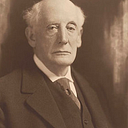The Tyranny and Threat of Good Intentions
In the U.S. state of Washington a woman found her home surrounded and was forced to call for police. The mob of miscreants who prevented her from entering were raccoons.
It started years ago when she decided to feed wildlife around her home. She just loved the animals and wanted to help them. It went well for a long time but suddenly almost 100 of them showed up demanding to be fed. To make matters worse raccoons are the leading source of rabies in the United States which can be transmitted to humans.
Liberal Nobel Prize winner, Prof. Milton Friedman, said something applicable to this situation. “One of the great mistakes is to judge policies and programs by their intentions rather than their results.” He warned, “There’s nothing that does so much harm as good intentions.”
Results are determined by the facts of reality not by emotions. Simply wanting to do the right the thing isn’t enough — you actually have to find the right solution and feeding raccoons was not one of them.
Author and scholar C.S. Lewis went a bit further than Friedman, he warned about the tyranny of good intentions. Often when people assume their own intentions are good they are willing to force others into complying in order to achieve the paradise they imagine they can create. Lewis cautioned we should be aware of the well-intentioned would-be tyrant in particular.
“Of all the tyrannies, a tyranny sincerely exercised for the good of its victims may be the most oppressive. It may be better to live under robber barons than under the omnipotent moral busybodies. The robber barons cruelty may sometimes sleep, his cupidity may at some point be satiated; but those who torment us for our own good will torment us without end, for they do so with the approval of their own conscience.”
The problems around good intentions are unfortunately real in both the private and political arenas. If anything it gets worse in the political realm because mistakes are paid for by taxpayers not the creators of the policy. At least private mistakes are usually paid for by the one making the mistake — giving them an incentive to be more cautious but even private ventures can go wrong.
Journalist Ashoka Mukpo saw this in a charity in Liberia founded and promoted to donors as a means of helping young women. But the objects of charity were often sexually abused by those over them. Mukpo asked how was it possible to prevent “good intentions from becoming a channel of self-interest” and said, “The scandal is a call for us all to be extremely cautious in how we translate our good intentions into action.”
We see good intentions create unintended consequences everywhere. For instance, “abstinence” education was created to teach young people they must avoid sex. However, the “abstinence only” theory taught little else and the moral busybodies pushing it argued contraception lessons were pushing sex on students and had to be stopped.
Studies of jurisdictions with abstinence programs instead of sex education did not see a reduction in teen sex, but did see an increase in pregnancy rates and sexually transmitted disease rates.
The British colonialists in India are said to have rewarded farmers if they killed cobras and brought the dead snake to them for cash. The immediate effect was a decrease in cobras but over time farmers started breeding cobras for the constant flow of cash thus increasing the number of snakes. Economists dubbed this the Cobra Effect.
One of the greatest failed ventures in history, Prohibition, was imposed to save people from the deleterious effects of drinking alcohol; but the results and the intentions had nothing to do with one another. Underground “speakeasies” flourished and criminal cartels thrived on the smuggling of illegal booze. Crime rates went up, police corruption escalated and gangs violently fought for a monopoly on the illegal distribution — something we are seeing repeated today with the war on drugs.
A second virtue of markets is they also tend to reward those who make others better off. Adam Smith famously said, “It is not from the benevolence of the butcher, the brewer, or the baker, that we expect our dinner, but from their regard to their own interest” The shop owner is not selling produce out of their love for their neighbors but because it provides rewards if they do it well.
Good intentions may feel good but that doesn’t mean the solutions they propose actually work. The best way to assure they are successful is the privatise profits when they work, but also privatize the costs when they don’t.
Daily information can be found on our BlueSky account in addition you can subscribe to this page for email notifications when new essays are posted.

